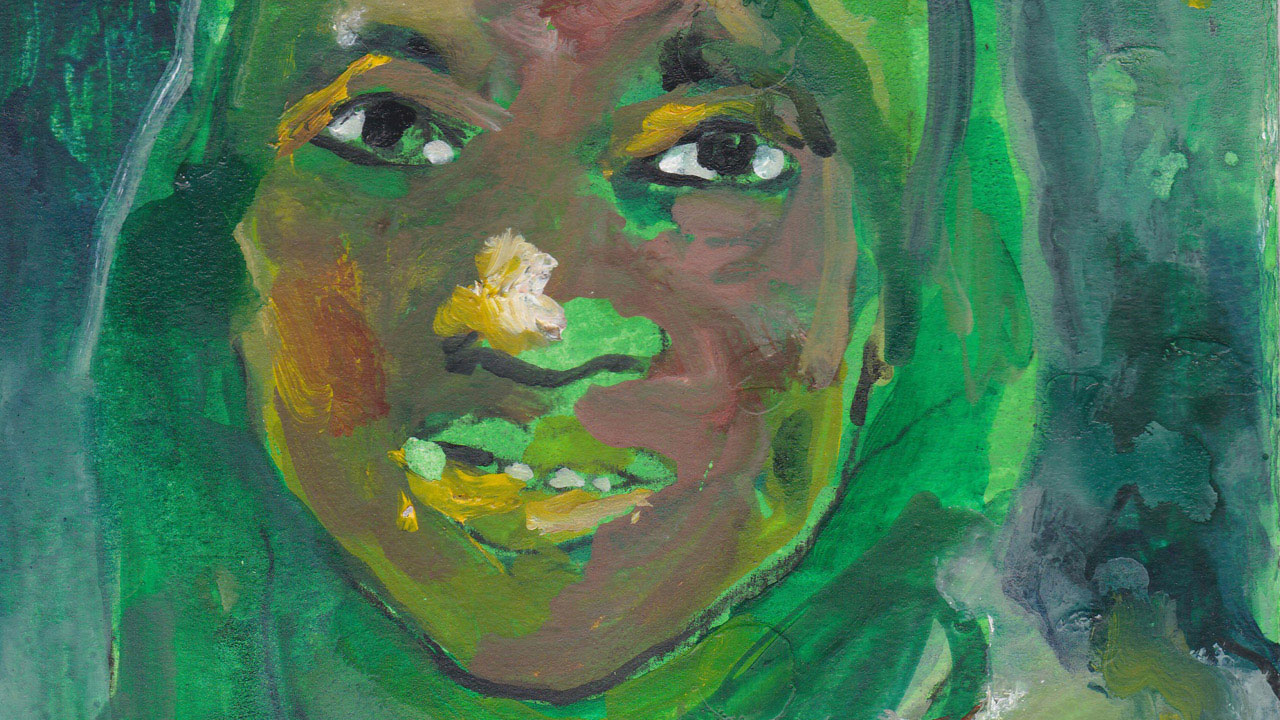
Portraits of Rohingya Women
‘Each of them is a thriving soul who comes with personal experiences of happiness and sadness. I was lucky they accepted me as a friend,’
– Farzana Urmi Ahmed, RCMC artist-in-residence
The inner lives of Rohingya women come to the surface in these painted portraits by Farzana Ahmed Urmi, Rohingya Cultural Memory Centre artist-in-residence from December 2019 to March 2020. Over four months, Farzana delved into the energies and lived experiences of the ten artisans comprising RCMC’s first embroidery group through workshops, heartfelt discussions, and creative projects. Farzana’s approach asked the artisans to bring the full range of their feeling to their work, guiding them toward transforming their craft into art.
Because of strict cultural norms, Rohingya women usually appear in public veiled in burka and hijab — hiding their inner selves from the world’s gaze. They will rarely reveal their faces in photographs.
‘But they want to be seen as humans, as individuals,’ Farzana says. As she and the artisans grew close over Farzana’s residency, they built trust and eventually allowed her to paint their portraits. ‘They were happy to share their energies with me which you see in these portraits.’
Each portrait uses a different colour palette to represent the unique collection of memories carried by each woman.
Morijan, a lively and spirited woman, is painted in green, and her face wears a firm look. The beige and mauve tones of Zaheda’s portrait, her eyes gazing towards a far horizon, evoke resilience forged from sadness.
‘I tried to capture their moods,’ Farzana says. ‘Maybe some of them have buried their past somewhere within themselves. But they are all rebel queens to me. They draw, they sew, they make art and sustain life.’
The portrait collection was painted over 15 days. Farzana photographed the artisans in the women-friendly centre with their consent, with the agreement that the photos would be used only as references for the portraits and never appear in public.
‘I tried to be as respectful as I could be about their cultural preferences around being photographed,’ Farzana says. ‘For the portraits, they unveiled themselves to me. Even while printing, I made sure that the digital files were deleted from the computers of the printing shop.’
These works are done with the trust demanded by our friendship,' Farzana says.
* * *
Farzana Ahmed Urmi is a Bangladeshi artist, specializing in portraiture and printmaking. Through playful exploration of techniques and materials like paper, ink, watercolor, acrylic, oil, collage, her work explores the boundaries of compositional arrangement and psychological tension. She worked with RCMC embroidery artisans as an artist-in-residence from December 2019 to March 2020.
